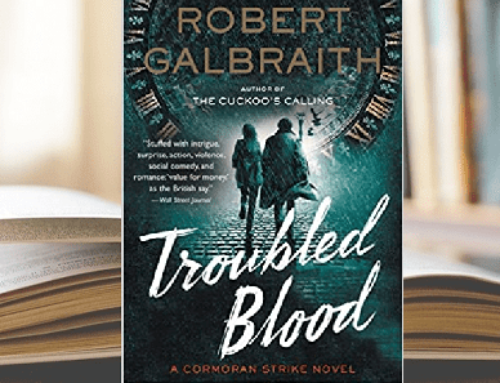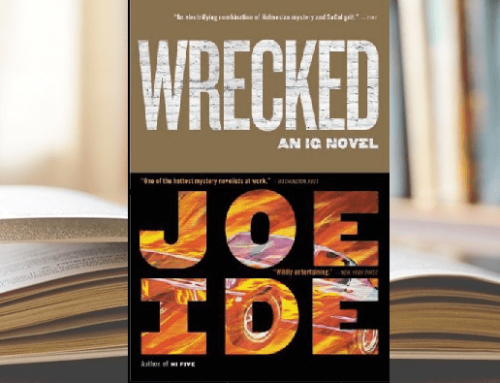[by Ross Browne]
October 27, 2020 brought two notes of bittersweet dichotomy for fans of the Jack Reacher series. On one hand, we had a new release to dig into, always a good thing in the eyes of “Reacher Creatures.” On the other, The Sentinel is the first book in the series whose byline Lee shares with his brother Andrew Child (AKA Andrew Grant) and one of the last in which Lee is expected to have much authorial involvement at all, as he prepares to hand the series off completely.
This changing of the authorial guard is well known to fans of the series and the subject of frequent discussion and debate. What gets less attention is Jack Reacher’s age, somewhere around 60, and the challenges of that as the series moves forward, given that Reacher is an action hero whose physical prowess has always been central to the stories.
I’ve been thinking about this a lot as I reread some earlier titles while waiting for the release of The Sentinel. This isn’t an easy thing that Andrew Child is doing. And the more I think about that, the more aware I become of another challenge for him in the days ahead: Jack Reacher lives what can only be thought of, at least in some respects, as an incredibly sad life. It’s a noble life too, but sad in ways that have my attention now as I contemplate the future of Reacher in Andrew Child’s hands.
I know, I know…Reacher is a fictional character, a figment of his author’s (now authors’) imagination, a vehicle to entertain readers and enact plot rather than a living, breathing person who needs (or would want) sympathy or compassion from the likes of me.
But to many of his readers, myself included, he’s much more. The 25 novels I’ve spent with Reacher have made me care about him as a person. It’s as simple as that.
A Hobo, Not A Vagrant
I totally get the satisfaction he derives from the simplicity of his lifestyle and the complete freedom he enjoys as a drifter. I’ve enjoyed his rationalizations when he’s questioned by other characters who can’t understand the appeal of a life with no direction, no obligations, and no belongings.
And as much as I admire him as a hero, as much as I understand all this and like reading about him just as he is, I want a better life for Jack Reacher.
This is a man who wanders the country by thumb or by bus, usually carrying nothing but a debit card, some pocket money, and a toothbrush. A man who spends just about every night in third-rate motels. A man who wears the same clothes every day until they’re too dirty and must be replaced. A man whose lifestyle is devoid of music, art, and books. A man whose relationships are always fleeting, who maintains close connections with pretty much no one, not even his own brother. A man whose entire life has been spent being told what to do in the military or having nothing to do besides drift aimlessly.
A Magnet For Trouble
One thing that makes the series so successful is that Reacher is, of course, a magnet for trouble, or at least for chance encounters with people in trouble who need his help. This happens often enough to give him a sense of purpose and put him in regular contact with others, at least for a little while. But then the conflict is resolved and it’s back to the next bus station or freeway onramp, leaving everyone he just connected with (and sometimes slept with) behind.
There are rare exceptions, of course. In Tripwire, he stays in Florida for a while, digging swimming pools and working security in a strip club. He even becomes a homeowner thanks to a bequest from a superior officer and flirts with the idea of settling and making a life with the lovely and talented Jodie Garber. But at the end of the day, he is a loner and drifter who, let’s face it, is getting on in years and whose life may soon feel incredibly empty.
Having spent 25 books with the guy, there’s a part of me that laments this, despite finding Reacher’s lifestyle as it now stands incredibly entertaining and perfect in its own way. The editor in me wonders about the ramifications of this for the future of Reacher’s character.
What If…?
Would Reacher be a better or more convincing character if he began showing a degree of concern for this? If he thought about how his life might change as his extraordinary abilities as a fighter and marksman start to wane? Would he be a better character if he showed remorse for letting so many smart, beautiful, and highly capable women with whom he had amazing chemistry slip away? Would readers find him more sympathetic if he thought about some kind of end-game, a plan to fill some of the voids in his life in his later years? Went to a baseball game? Attended a concert? Fixed a leaky pipe or got an oil change? (Not in front of our eyes necessarily.)
Because Lee Child has wisely allowed Reacher to age in real time over the course of the series, there’s an argument to be made for “yes.” Reacher was 36 in 1997’s The Affair. Child’s decision to hand authorship of the series over to his brother rather than end it suggests we’ll be reading about Jack Reacher well into his 60s and perhaps even beyond.
So in addition to Reacher wanting things that he has eschewed to this point—home, hearth, company, stability—we must consider how many other foundational elements of the series may have to change as he gets older. The days of prevailing in fights where he’s badly outnumbered are surely limited. His attractiveness to women may diminish along with his marksmanship. Will he need to add Viagra to his short list of ever-present personal belongings? (Let’s just ignore the fact that he doesn’t carry condoms…) And he surely can’t stay as physically imposing and threatening.
It seems to me Andrew Child has some tough choices to make as he takes the helm. Either he stays the course at the expense of diminishing credibility, or he takes the series in a new direction as Reacher ages, risking the whole identity of the series. This raises some interesting possibilities, actually, if Reacher could only outwit rather than outgun or outfight his adversaries. (He’s proven himself capable of this many times.) In the hands of the right author, it could be brilliant.
I don’t know what Andrew will decide to do, but I wish him luck and have every expectation of coming along for the ride.
And I suspect I won’t be alone!







